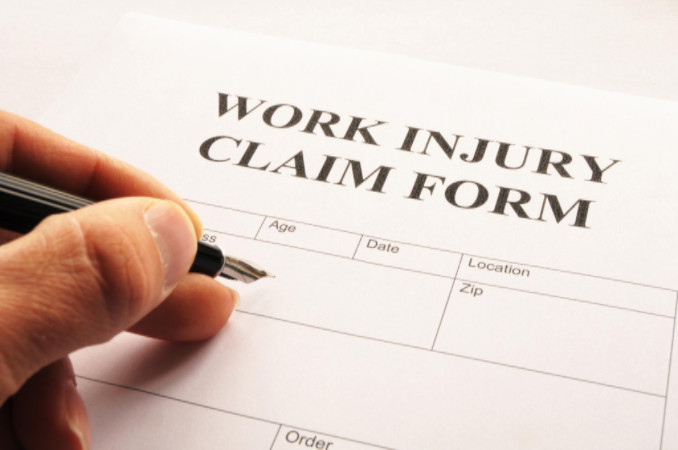
Colorado Workers’ Compensation for Injured Restaurant Workers
Understand your rights after an on-the-job injury in a Denver restaurant so you can get the compensation you deserve.
The restaurant industry in Denver is not just booming in terms of popularity and diversity—it’s also seen a noteworthy surge in wage growth in recent years. This has made jobs in the food and hospitality sector increasingly attractive to a broader range of people.
However, like any work environment, the restaurant industry is not without its risks. Fortunately, employees who suffer injuries on the job may be eligible for benefits that cover medical expenses and lost wages through their employers’ workers’ compensation insurance.
Did you know?
According to the Colorado Restaurant Association, Colorado employs more than 260,000 restaurant workers at more than 12,700 locations, making it 5th in the nation for restaurants per capita. Despite these establishments generating more than $425 million annually in state and local taxes, 8 out of 10 restaurants say they’re struggling with staffing shortages, even after increasing wages by an average of 20% in recent years.
Restaurant worker injury statistics
In 2019, the U.S. Bureau of Labor Statistics (BLS) reported that restaurant workers in the U.S. experienced approximately 93,800 nonfatal injuries and illnesses, with about 1 in 3 cases requiring at least 1 day off work.
The incidence rate for restaurant worker injuries requiring time off work was 88.3 cases per 10,000 full-time workers in 2019. This was slightly higher than the rate for all private industry workers that year, which was 86.9.
What are common injuries among restaurant workers?
The restaurant industry is rife with potential hazards that can lead to various injuries among workers. The most commonly reported injuries by the BLS are muscle and tendon sprains, strains and tears, often resulting from lifting heavy objects or slip-and-fall accidents.
Other common injuries faced by restaurant workers include the following:
- Burns. Handling hot equipment like stovetops, ovens, fryers, and hot oil and liquid can result in varying degrees of burns.
- Repetitive stress injuries. Tasks that involve repetitive motions, like chopping or stirring, can cause conditions like carpal tunnel syndrome.
- Brain and spinal cord injuries. These can result from slip-and-fall accidents due to wet floors, clutter, or improperly stored equipment, as well as from violence from customers or coworkers.
- Skin or eye injuries. These can result from exposure to cleaning agents and other chemicals.
- Lacerations, cuts and punctures. The use of sharp tools such as knives and slicers can lead to deep cuts and even amputation injuries if not handled properly.
It’s crucial for both employers and employees to be vigilant in adhering to OSHA safety standards to minimize these risks and ensure a safer work environment.
In the news: 2 Denver restaurant workers killed in violent attack
On April 24, 2023, two restaurant workers were found dead inside the American Elm restaurant in Denver’s West Highland neighborhood, prompting an investigation. According to investigators, the victims, Ignacio Gutierrez and Emerall Vaughn-Dahler, died as a result of gunshot wounds, and their deaths have been ruled homicides.
Unfortunately, this is only one of multiple Colorado restaurants impacted by gun violence this year, highlighting the importance of taking measures to provide security to protect workers’ safety.
What are the most common food service accidents caused by?
In the food service industry, the most common injuries involve strains, sprains and tears to muscles and tendons. These injuries are caused by a variety of factors, including improper lifting of heavy materials and repetitive motions required when preparing, cooking or serving food.
Additionally, the high-stress, fast-paced restaurant environment often exacerbates these risks, particularly when employees are inadequately trained in proper lifting techniques and ergonomics.
After strains, sprains and tears, the next most common accidents among restaurant employees are cuts and lacerations. These accidents are particularly common among restaurant employees due to the frequent use of sharp objects like knives, slicers and food processors in kitchens.
Additionally, the pressure to work quickly can often lead to hurried actions, reducing the time and focus needed to safely handle these tools. Wet surfaces or greasy hands can also make it challenging to maintain a secure grip, further increasing the risk of cuts.
Do Colorado restaurant workers qualify for workers’ comp benefits after an injury?
In Colorado, most employers with even a single employee are required to provide workers’ comp insurance for their staff, so restaurant workers will typically qualify for workers’ compensation after an injury.
To be eligible for these benefits, you must be an employee (not an independent contractor), and your injury, illness or disease must have occurred in the “course and scope of your employment,” meaning that it happened while you were performing your work duties or as a direct result of your work environment.
Workers’ comp covers injuries that occur from one-time accidents, as well as occupational diseases and illnesses, like hearing loss or certain cancers (e.g., mesothelioma) that develop gradually.
What if I was responsible for the accident that caused my injury?
Workers’ compensation is a no-fault system, meaning that you’re generally eligible for benefits regardless of who was at fault for the accident that caused your injury. The focus is on providing you with medical care and wage replacement, rather than determining blame.
However, there are some exceptions that could disqualify you from receiving benefits. For example, you may not be eligible if you were under the influence of drugs or alcohol at the time of the accident, intentionally neglected to use a provided safety device, or willfully disregarded a reasonable and clearly posted written safety rule.
If you’re unsure if your injury qualifies for workers’ comp, reach out to a work injury attorney who can help determine your eligibility and explain your rights.
What benefits are Colorado restaurant workers entitled to after a work-related injury or illness?
Restaurant workers who sustain a work-related injury or illness are entitled to various types of benefits through the workers’ compensation system.
First and foremost, they’re eligible for medical benefits that cover necessary medical care to treat the injury or illness. This can include hospital stays, medication, rehabilitation, and any other treatments deemed necessary by an employer-approved health care provider.
Wage loss benefits are another crucial component. If the injury or illness prevents the worker from returning to work for a period of time, partial wage replacement is available. The amount and duration of these benefits can vary depending on the severity of the injury and the worker’s average weekly wage prior to the injury.
Lastly, in the unfortunate event of a fatal work-related injury or illness, death benefits are available to the dependents of the deceased worker. This can include compensation for funeral expenses and a portion of the worker’s salary.
However, to qualify for these benefits, it’s crucial that you report your injury in a timely manner and follow the necessary steps for filing a claim. Failure to do so could result in a denial of benefits.
Why Was Your Colorado Workers’ Compensation Claim Denied?
Don’t miss out on the compensation you deserve! Learn the 7 most common reasons workers’ compensation benefits are denied.
How do I file a workers’ comp claim in Colorado?
Filing a workers’ compensation claim in Colorado involves several steps to ensure you receive the benefits you’re entitled to:
- First, it’s crucial to report your injury or illness to your employer as soon as possible, preferably in writing. Colorado law requires that you inform your employer within 10 working days of the injury or illness.
- After notifying your employer, they’re obligated to file a report with their insurance company within 10 days. You should then receive a copy of this report and additional information about the workers’ compensation process from the insurance company. Make sure to keep all documents and correspondence related to your case.
- Next, seek medical treatment promptly. This is crucial for establishing that your injury or illness is related to your job, so be sure to inform the medical team that your injury or illness is work-related. Your employer should provide you with a list of approved health care providers to choose from.
- It’s important to follow up regularly to check the status of your claim and to provide any additional documentation or information that may be requested. If your claim is approved, you should start receiving benefits. If it’s denied, you have the right to appeal the decision, but it’s strongly recommended that you seek the help of an experienced workers’ compensation attorney to help you with the process to ensure your rights are protected.
Does my employer have to hold my job while on workers’ comp in Colorado?
In Colorado, employment is generally “at-will,” meaning your employer can terminate you without giving advance notice, unless a contract states otherwise.
While your employer does not have to hold your job for you when you’re on workers’ compensation, they do have to show just cause for terminating you. Reasons for termination often cited by employers include insubordination, failing to perform job duties adequately, or failing a drug test, among others.
So can I get fired for filing a workers’ comp claim?
No, firing someone solely for filing a workers’ compensation claim is considered illegal retaliation. If you suspect that you’ve been unjustly terminated in response to filing a workers’ compensation claim, it’s crucial to consult with a qualified workers’ compensation attorney as soon as possible to discuss your legal options.
Contact an experienced Colorado work injury attorney
If you’re a restaurant worker in Colorado who has been seriously injured on the job, don’t navigate the complex landscape of workers’ compensation alone. Legal expertise can be invaluable in ensuring that you receive the medical care and wage loss benefits you’re entitled to, especially if your injury requires long-term medical treatment or extended time off work.
At The Babcock Law Firm, our experienced Denver work injury attorneys can help you file a claim, negotiate on your behalf with your employer’s insurance company, and advocate for you if disputes arise.
Still have questions or concerns about your rights after a work injury? Contact us today for a free consultation.
References
93,800 nonfatal injuries and illnesses in full-service restaurants in 2019 : The Economics Daily: U.S. Bureau of Labor Statistics. (n.d.). www.bls.gov. Retrieved October 11, 2023, from https://www.bls.gov/opub/ted/2020/93800-nonfatal-injuries-and-illnesses-in-full-service-restaurants-in-2019.htm#:~:text=Private%20industry%20workers%20in%20full
Restaurant Industry Statistics – CO Restaurant Association. (n.d.). Colorado Restaurant Association. Retrieved October 11, 2023, from https://corestaurant.org/industry-statistics/


